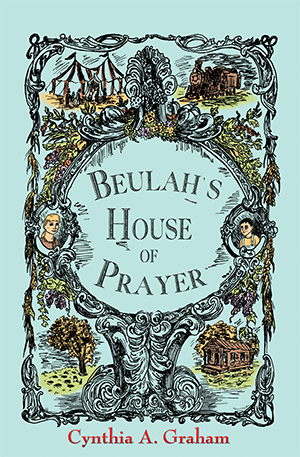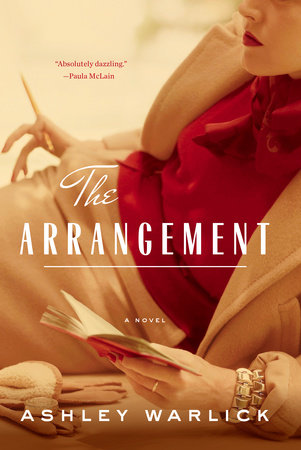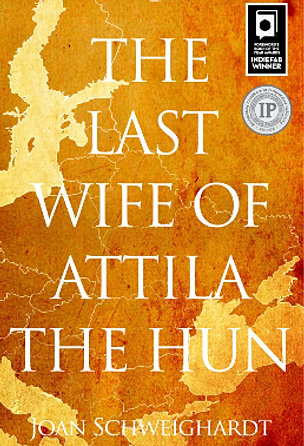 Edenland is the evocative title of an evocative novel set in the early days of the US Civil War. Its story plunges us into the Great Dismal Swamp that straddles Virginia and North Carolina, and never quite allows us to escape the treacherous waters that threaten to engulf its protagonists.
Edenland is the evocative title of an evocative novel set in the early days of the US Civil War. Its story plunges us into the Great Dismal Swamp that straddles Virginia and North Carolina, and never quite allows us to escape the treacherous waters that threaten to engulf its protagonists.
Category: Historical Fiction
A review of Beulah’s House of Prayer by Cynthia A Graham
 I would categorize this book as historical fiction first and foremost, though it is touted as magical realism. I had this in the back of my mind as I read, but other than Beulah’s mysterious arrival in town and her omnipresence for most of the rest of the book, the “magical realism” elements weren’t obvious—until the end. This is where Graham’s gift of storytelling shines through
I would categorize this book as historical fiction first and foremost, though it is touted as magical realism. I had this in the back of my mind as I read, but other than Beulah’s mysterious arrival in town and her omnipresence for most of the rest of the book, the “magical realism” elements weren’t obvious—until the end. This is where Graham’s gift of storytelling shines through
A review Of The Arrangement By Ashley Warlick

A review of The Last Wife of Attila the Hun by Joan Schweighardt

The Rebellion of Miss Lucy Ann Lobdell by William Klaber
 Klaber vividly depicts life in untamed Minnesota on the brink of statehood. There, Lobdell lives (as a man) in a shanty town outside St. Paul’s and works in a hotel kitchen. To make more money, he signs on as one of two guards at a land claim at Kandiyoki, in a remote part of the state. He encounters aboriginal people and finds a vast, wolf-haunted snow-covered wilderness with game to hunt.
Klaber vividly depicts life in untamed Minnesota on the brink of statehood. There, Lobdell lives (as a man) in a shanty town outside St. Paul’s and works in a hotel kitchen. To make more money, he signs on as one of two guards at a land claim at Kandiyoki, in a remote part of the state. He encounters aboriginal people and finds a vast, wolf-haunted snow-covered wilderness with game to hunt.
A review of The Yanks are Starving by Glen Craney
 The “bonus” in “Bonus Army” or “Bonus Expeditionary Force” refers to the bonus for wartime service, a tradition in the U.S. ever since the War of Independence. A law passed in 1924 during the Coolidge administration stipulated that World War I veterans were to get a bonus in the form of a certificate redeemable twenty years later. In 1930 and 1931, when the impact of the economic downturn following the 1929 stock market crash was making itself felt, unemployed veterans demanded their bonus immediately.
The “bonus” in “Bonus Army” or “Bonus Expeditionary Force” refers to the bonus for wartime service, a tradition in the U.S. ever since the War of Independence. A law passed in 1924 during the Coolidge administration stipulated that World War I veterans were to get a bonus in the form of a certificate redeemable twenty years later. In 1930 and 1931, when the impact of the economic downturn following the 1929 stock market crash was making itself felt, unemployed veterans demanded their bonus immediately.
A review of Beware of Pity by Stefan Zweig
 Stefan Zweig’s only novel was published in 1939, on the eve of the Second World War and some three years before his death, and its tale of a naive army officer in pre-World War One Austria seems to be set wholly apart from the terrible times he was living through. But it would be a mistake, in my view, to see it as an escape into ‘the world of yesterday’. Instead, I’d read the novel as an attempt to locate the low poisonous roots of Nazism, roots which later found expression in the despicable doctrine of Lebensunwertes Leben, in the world that Zweig was so familiar with.
Stefan Zweig’s only novel was published in 1939, on the eve of the Second World War and some three years before his death, and its tale of a naive army officer in pre-World War One Austria seems to be set wholly apart from the terrible times he was living through. But it would be a mistake, in my view, to see it as an escape into ‘the world of yesterday’. Instead, I’d read the novel as an attempt to locate the low poisonous roots of Nazism, roots which later found expression in the despicable doctrine of Lebensunwertes Leben, in the world that Zweig was so familiar with.
A review of The Medici Boy by John L’Heureux
 Donatello, whose concentrated gaze and one time kiss brings to life the embittered Matteo as well as the bronze, or marble upon which the great Master lays his hands seems to breathe life not only into the statues he creates but into the very air breathed by those fortunate enough to share it with him.
Donatello, whose concentrated gaze and one time kiss brings to life the embittered Matteo as well as the bronze, or marble upon which the great Master lays his hands seems to breathe life not only into the statues he creates but into the very air breathed by those fortunate enough to share it with him.
A review of Vienna Nocturne by Vivien Shotwell
 Vienna Nocturne is outstanding, as well, because of Shotwell’s knowledge of opera. As a professional singer, a mezzo-soprano, she knows how a singer feels as she or he stands before an audience, and she can also put musical effects into words. When Anna first sings the role of Susanna, she has “the sensation of balancing a ball on her nose like a bear at a circus.”
Vienna Nocturne is outstanding, as well, because of Shotwell’s knowledge of opera. As a professional singer, a mezzo-soprano, she knows how a singer feels as she or he stands before an audience, and she can also put musical effects into words. When Anna first sings the role of Susanna, she has “the sensation of balancing a ball on her nose like a bear at a circus.”
A review of Faulkner and Friends by Vicki Salloum
 Like Faulkner, Salloum writes impressionistically and uses stream-of-consciousness narration, demanding that the reader do some work to put together the strands of the characters’ stories. While his main themes are race, and the Southern heritage while hers is poverty. In some respects, Salloum’s novel resembles John Steinbeck’s Cannery Row in its celebration of people on society’s fringes.
Like Faulkner, Salloum writes impressionistically and uses stream-of-consciousness narration, demanding that the reader do some work to put together the strands of the characters’ stories. While his main themes are race, and the Southern heritage while hers is poverty. In some respects, Salloum’s novel resembles John Steinbeck’s Cannery Row in its celebration of people on society’s fringes.